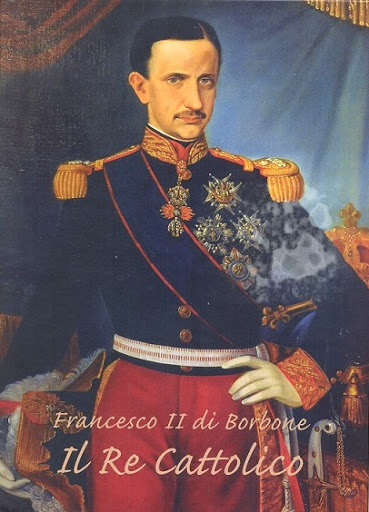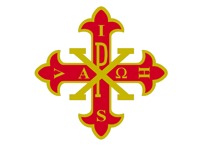
With the opening of the cause of beatification of His Majesty Francis II, last King of a peaceful and fruitful nation, the “damnatio memoriae” imposed by the victors, causing this sovereign to be remembered in Italian history with the name Franceschiello, is finally put to an end.
Francis II had a varied and complex personality. In the few months of his reign, he was unable to put an end to a crisis which had begun far away, of which he had been bequeathed the difficult inheritance. But still, throughout the course of his life, he knew how to give ample proof of total closeness and identification with the peoples he governed. Not only because he prevented the destruction of Naples.
Giving precise orders to the garrisons present in the city to not shoot upon the arrival of Garibaldi’s troops, but above all, during the battle of Volturno and the following siege of Gaeta, he did so in a way that none of the prisoners, Garibaldi’s men first, and then the Piedmonts, would be treated villainously, as was then the practice among the troops fighting him.
Deeply Catholic, Francis II made of Christian doctrine a doctrine of life, always relieving the sufferings of his people, even following the fall of his Kingdom. And, although restricted economically, his aid was never lacking to those who asked him for it. He always had the dignity of a King.
And throughout his life, made up of mourning and suffering, the least of which was the loss of his only and most beloved daughter, Maria Christina, he faced all of these trials with Christian patience. So much so, to cause Pius IX to say that Francis II resembled a little “Job.”
Were these the signs of a weak character? No.
It was the sign of an interior strength determined to not give way even a millimeter, on the principles of international and dynastic political law, but aware that the end of the Kingdom and his consequential exile were the fruit of past errors which his filial devotion did not allow him to officially recognize.
Now, the opening of the beatification process on the part of the Bishops Conference [of Campania], is an important sign, for which I would like to personally thank all who have contributed to the maturation of this decision.
Obviously the process will be concerned with the more specifically religious aspects of the life of Francis II, but it will help to contextualize his historical figure with objectivity.
And in this, I will personally commit myself to emphasize how much good His Majesty accomplished.
We owe it to his memory, but we also owe it to Southern Italy, because history teaches us that without the past, there is no future.
And, unfortunately, this is what Southern Italy lives out, every day.
Charles of Bourbon-Two Sicilies, Duke of Castro
Head of the Royal House of Bourbon-Two Sicilies
Grand Master







